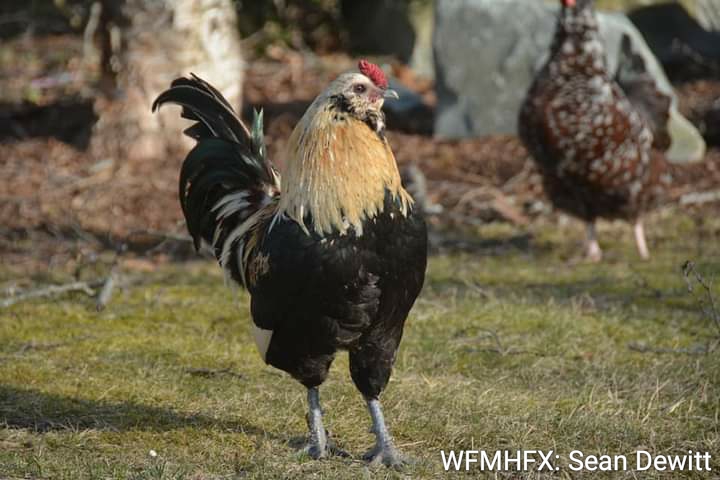**** Info via CFIA
Raising chickens? Follow 5 rules to protect your birds from the flu.
Protect your flock from bird flu
Avian influenza, known as “bird flu,” is a viral infection that spreads easily and quickly among birds. Parts of North America, Europe, Asia and Africa are currently seeing bird flu outbreaks.
Your backyard chickens and pet birds could be at risk of catching bird flu when wild birds migrate to and through Canada in the spring and fall months, as wild birds naturally carry influenza viruses.
Now is the time to review your preventative measures to keep your animals healthy, especially if you have a chicken coop or keep pet birds outside. Simple, inexpensive practices can be very effective at keeping these serious diseases away from your birds.
protect your flock from diseaseIf you think your birds are infectedIf you spot a sick or dead wild birdAdditional
information
How your flock can get sick
Bird flu can be carried by wild birds. Wild birds such as ducks and geese can carry diseases, including bird flu, without looking sick. If these birds come in direct or close contact with your chickens or pet birds, in particular if they have access to the outdoors and ponds or bodies of water, the disease can be passed onto them. There is no treatment for birds that become infected with the disease.
Chickens and hobby flocks as pet birds can also be infected. On rare occasions, some subtypes of the virus can cause illness in humans. Health Canada has more information about human health issues related to bird flu.
Learn more about bird flu and pets.
Signs of bird flu
Infected birds may show one or many of these signs:
- lack of energy, movement or appetite
- decreased egg production
- swelling around the head, neck and eyes
- coughing, gasping for air or sneezing
- nervous signs, tremors or lack of coordination
- diarrhea
- sudden death
How to avoid bird flu and protect your flock from disease
You can help protect your birds by following these 5 basic rules:
- prevent contact with wild birds and other animals
- frequently clean poultry coops, waterers, feeders, your clothing and your boots
- spot the signs and report early
- limit exposure to visitors
- keep new birds separate when entering your flock
Learn more about preventing and detecting bird flu in backyard flocks and pet birds.
If you think your birds are infected
Bird owners are legally responsible to notify authorities of serious bird diseases such as bird flu. Call a veterinarian or your nearest Canadian Food Inspection Agency (CFIA) Animal Health office if you suspect your birds have bird flu.
Find out what to expect if your animals are infected.
If you spot a sick or dead wild bird
Anyone who finds a sick or dead wild bird is encouraged to contact the Canadian Wildlife Health Cooperative (CWHC).
Be prepared to submit details like where you found the bird or discuss options for carcass submission to allow them to gather information about the health of wild populations.
Report sick or dead wild birds to CWHC.




